
CReactive Protein What's Optimal? A Comprehensive Review YouTube
C-reactive protein (CRP) is a protein the liver produces in the presence of infection or inflammatory disease such as rheumatoid arthritis. When you have an infection, the white blood cells act to fight it by producing a number of proteins, some of which stimulate the liver to produce CRP. The blood level of CRP has been used for many years to.
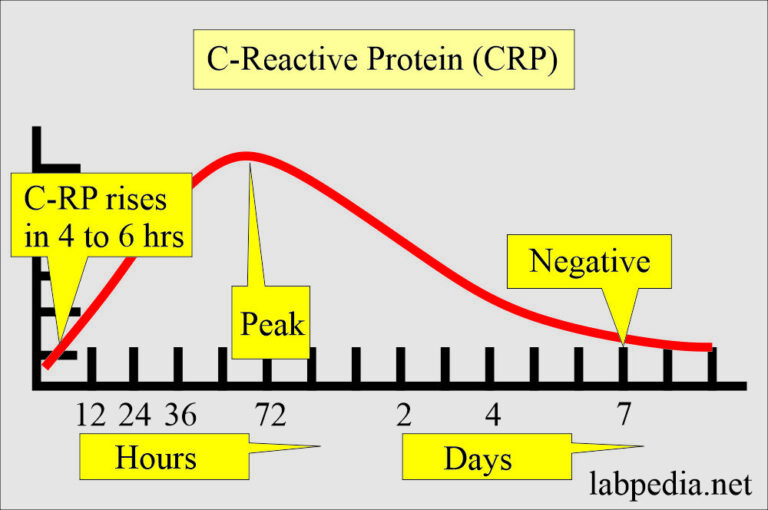
CReactive Protein (CRP), HighSensitivity CReactive Protein (hsCRP), Acute Phase Protein
A C-reactive protein (CRP) test is a blood test used to detect general inflammation. Inflammation is the body's natural response to infection, disease, or injury, so a CRP test can provide the first clue as to whether some sort of inflammatory condition is occurring. A CRP test cannot tell what the source of the inflammation is, but, when.
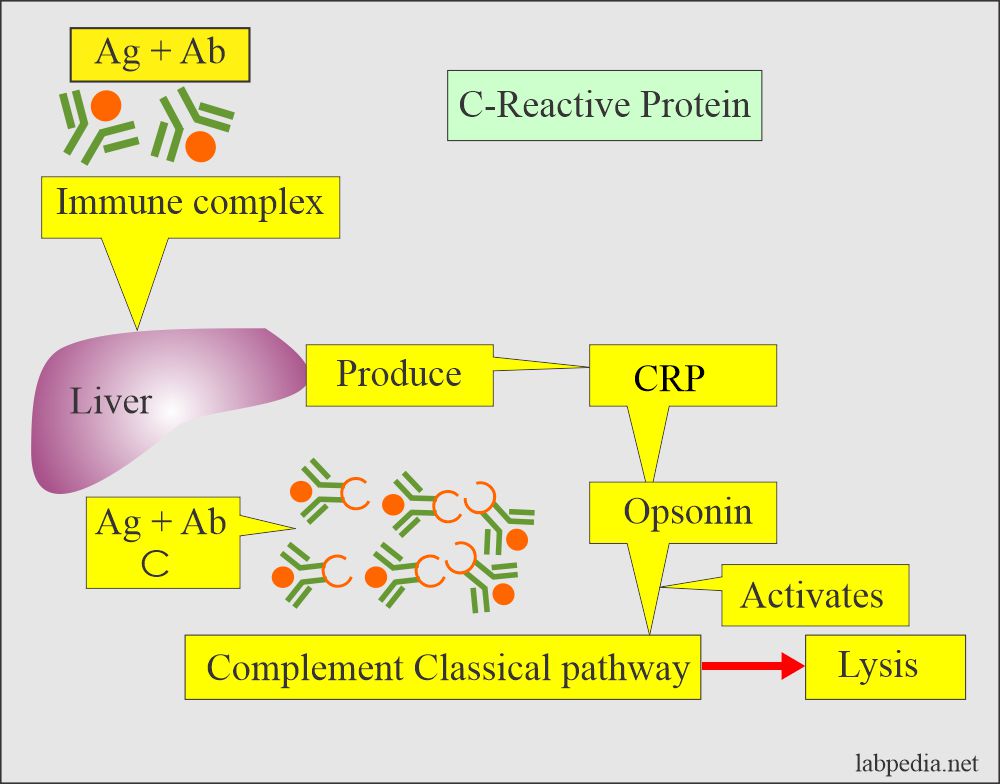
CReactive Protein (CRP), HighSensitivity CReactive Protein (hsCRP), Acute Phase Protein
C-reactive protein (CRP) is a substance the liver produces in response to inflammation. A high level of CRP in the blood can be a marker of inflammation. A wide variety of conditions can cause it.
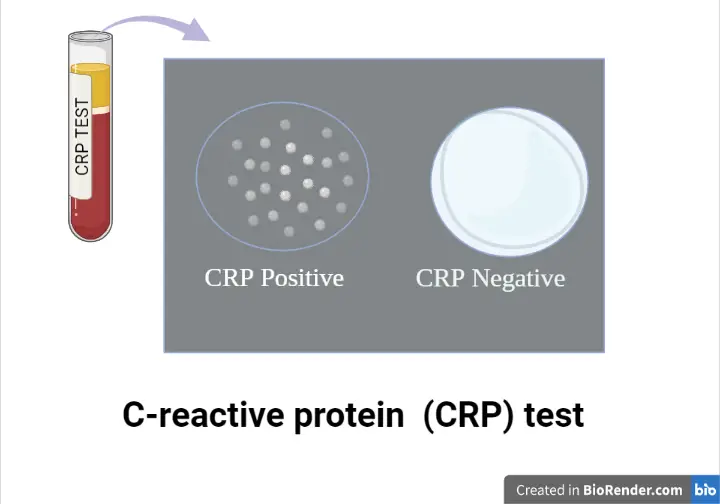
Creactive protein (CRP) Test Principle, Procedure, Result • Microbe Online
C-reactive protein is predominantly synthesized in the liver (1q23.2) [], typically within the transcriptional phase of the response to proinflammatory cytokines.IL-6 appears to be the main regulator, by promoting de novo synthesis of CRP via upregulation of C/EBPβ and C/EBPδ, key transcription factors in this process [].In addition, IL-6 signaling may be reinforced by IL-1β and TNF, both.

What is CRP Normal Range (rapid and Hs creactive protein normal range)? Blood Test Results
A recent study found that elevated levels of C-reactive protein were associated with three-times-greater risk of a heart attack. In a Harvard Women's Health Study, CRP test results were more accurate.

The Creactive protein (CRP) level (normal vs. abnormal) at the time of... Download Scientific
Introduction. C-reactive protein (CRP) was discovered by Tillett and Francis in 1930. The name CRP arose because it was first identified as a substance in the serum of patients with acute inflammation that reacted with the "c" carbohydrate antigen of the capsule of pneumococcus. CRP is a pentameric protein synthesized by the liver, whose level.
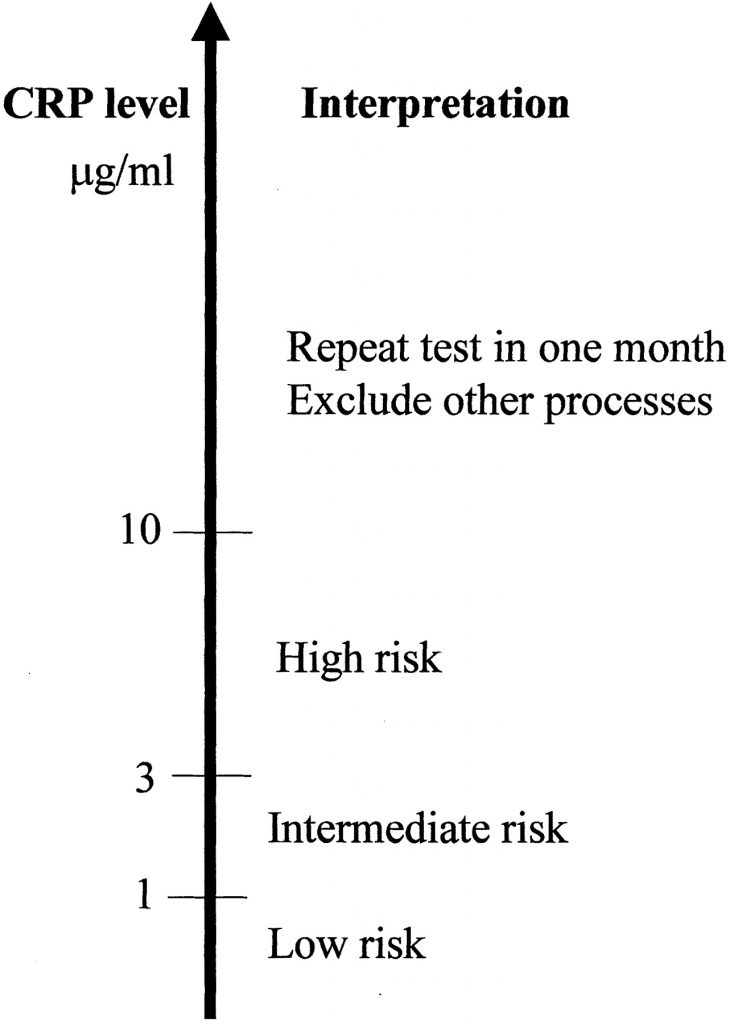
CREACTIVE PROTEIN CRP TEST Healsens Digital Preventive Care
C-reactive protein (CRP) is a blood test used to help detect the presence of inflammation or an infection. Close. Open. Share on Facebook. Twitter. Email . Notice: Users may be experiencing issues with displaying some pages on stanfordhealthcare.org. We are working closely with our technical teams to resolve the issue as quickly as possible.
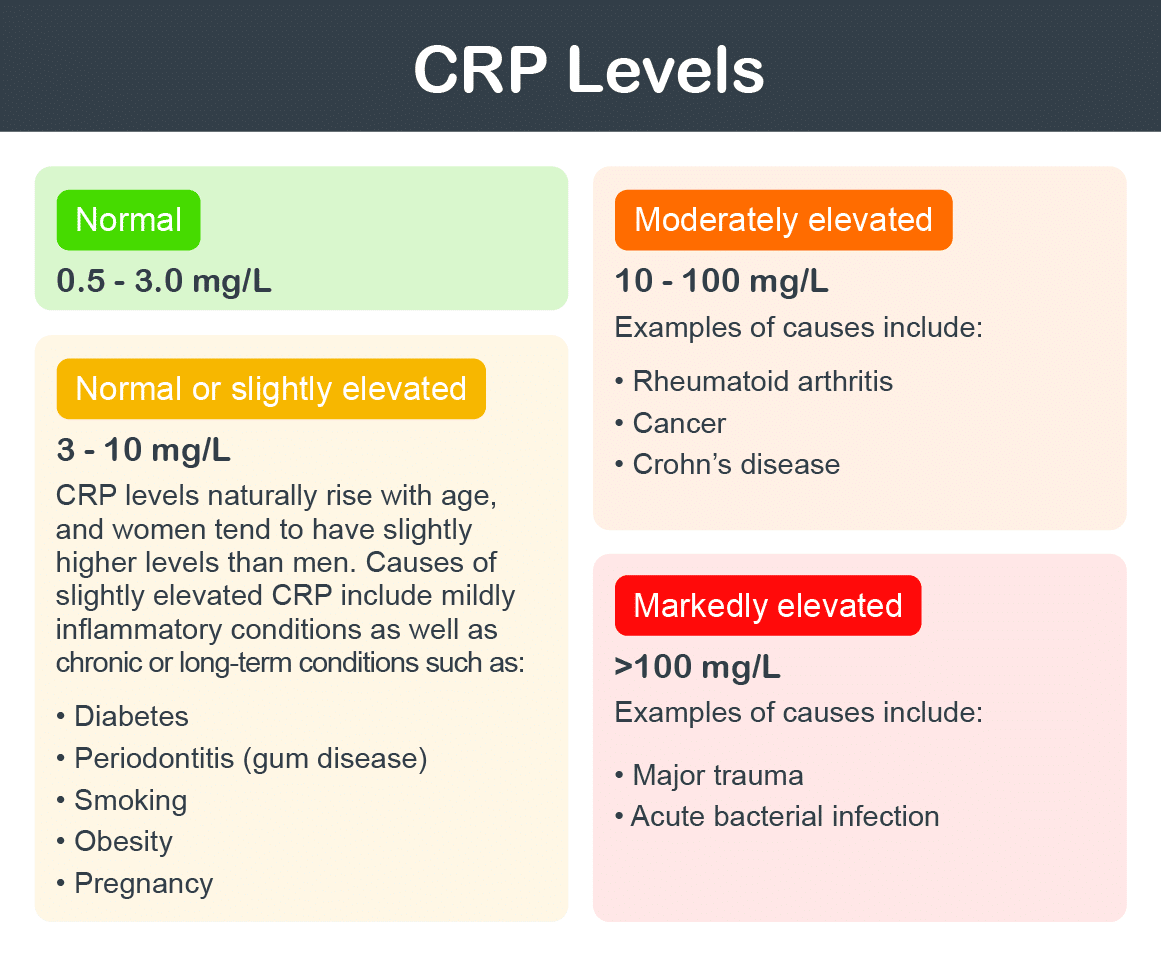
CReactive Protein Halza
A study found that elevated levels of C-reactive protein were linked to a three times greater risk of a heart attack. Here are what the results mean: hs-CRP level lower than 1.0 milligrams per.
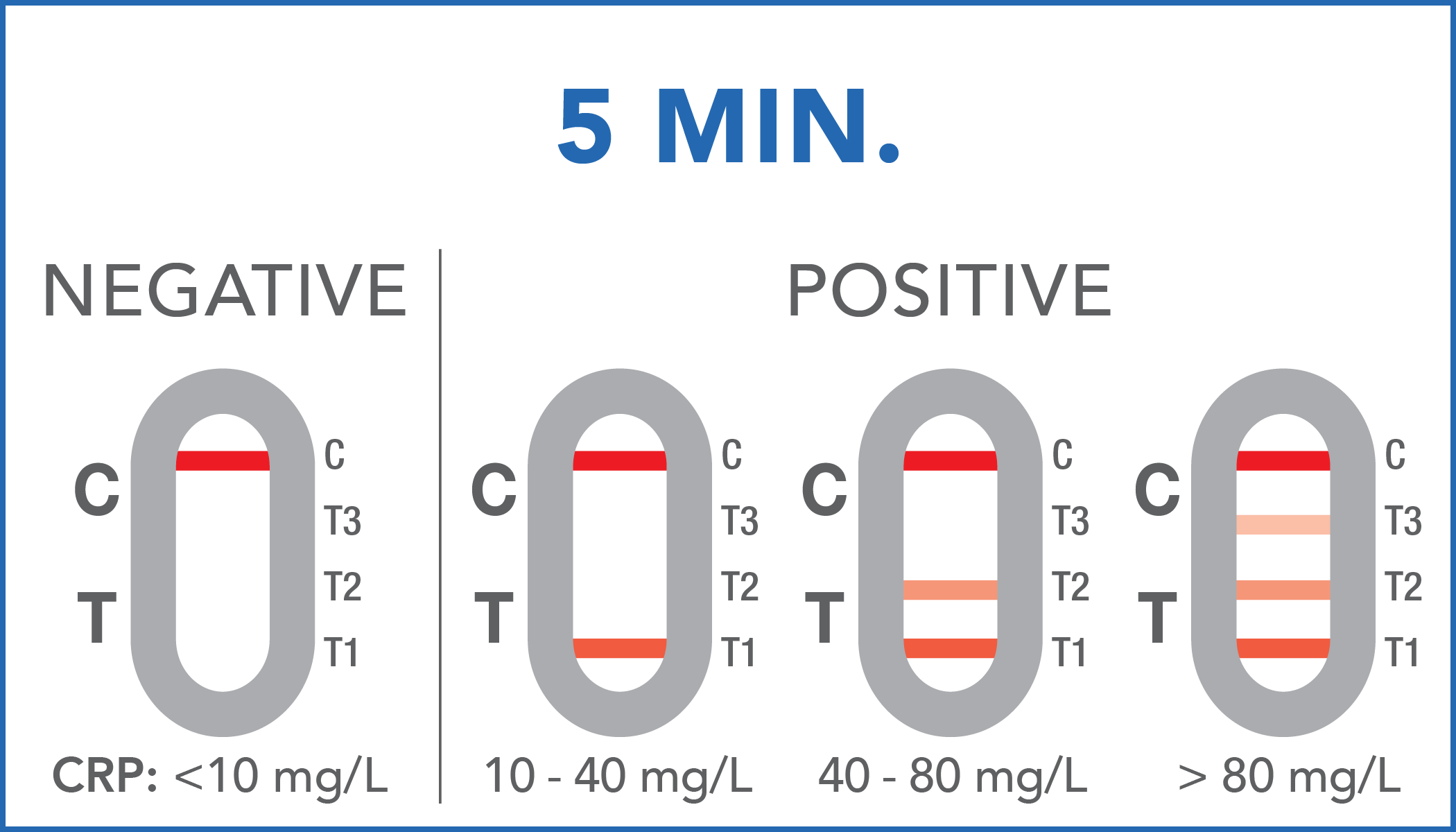
CReactive Protein Test PRIMA Lab SA
The reference range for C-reactive protein is as follows: CRP: -10mg/dL High-sensitivity CRP (hs-CRP): < 3 mg/L. News & Perspective Drugs & Diseases. C-reactive protein and coronary heart disease: a critical review. J Intern Med. 2008 Oct. 264(4):295-314. [QxMD MEDLINE Link]. Devaraj S, Singh U, Jialal I. Human C-reactive protein and the.
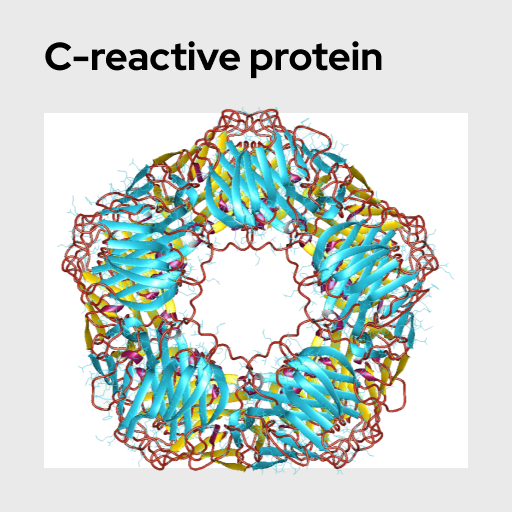
Creactive protein (CRP) TCU Eos BioAnalytics
C-reactive protein (CRP) is een acute fase eiwit. Het wordt gemaakt in de lever en wordt een paar uur na ontsteking verspreid in de bloedbaan. Verhoogde waarden worden onder andere gevonden na een hartaanval, tijdens infectie en na een chirurgische ingreep.. Waarde Eenheid; CRP < 10: mg/L: Vrouwen. Onderzoek Waarde Eenheid; CRP < 10: mg/L.

CReactive Protein (CRP) PowerPoint Template and Google Slides Theme
A c-reactive protein test measures the level of c-reactive protein (CRP) in your blood. CRP is a protein made by your liver. It's sent into your bloodstream in response to inflammation. Inflammation is your body's way of protecting your tissues if you've been injured or have an infection.
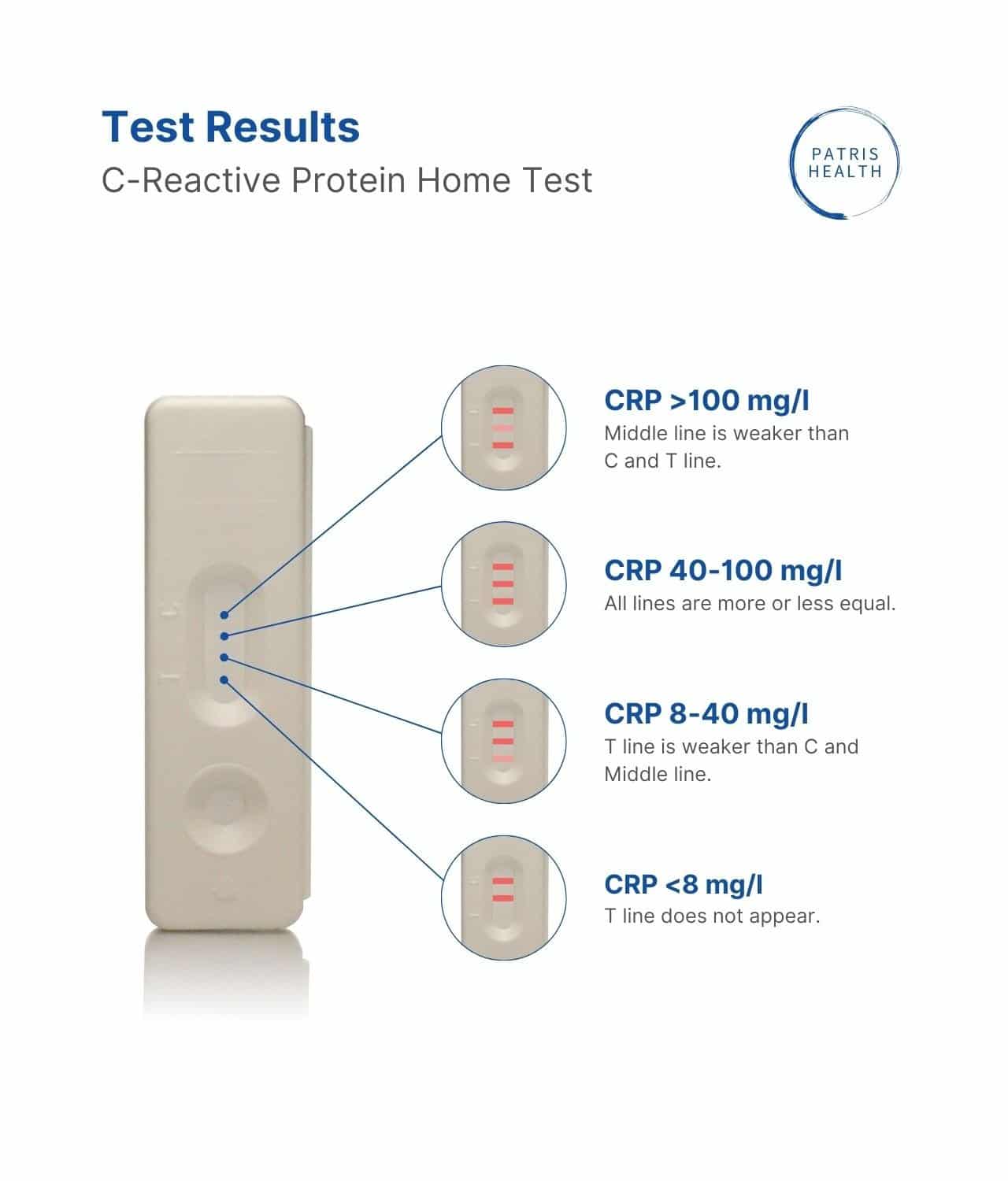
Patris Health® CReactive Protein (CRP) Home Test EU Certified
C-reactive protein level (in milligrams per liter of blood) in adults: What it means: Below 3.0: normal: 3.0-10.0: slightly elevated, which may signify a variety of conditions such as pregnancy.
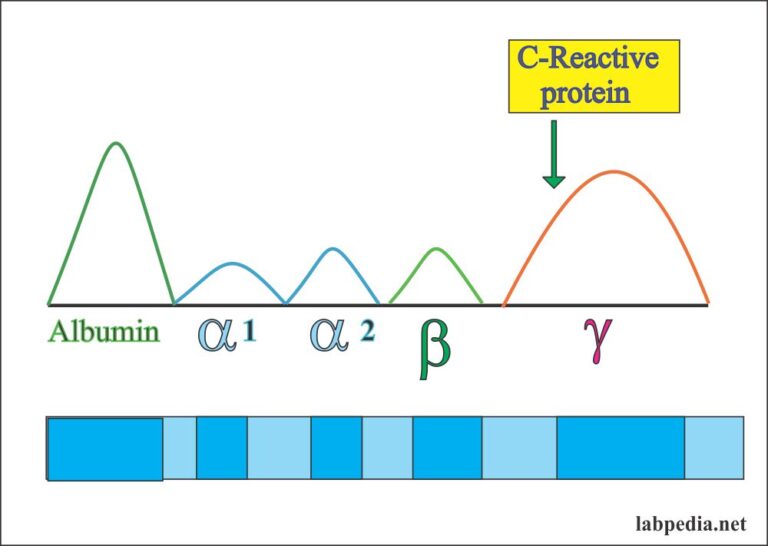
CReactive Protein (CRP), Highsensitivity CRP (hsCRP)
C-reactive protein is measured in milligrams per liter (mg/L). Results equal to or greater than 8 mg/L or 10 mg/L are considered high. Range values vary depending on the lab doing the test. A high test result is a sign of inflammation. It may be due to serious infection, injury or chronic disease.

Courses of laboratory parameters Upper graph, Creactive protein; left... Download Scientific
C-reactive protein. C-reactive protein (CRP) is produced by the liver. The level of CRP rises when there is inflammation in the body. It is one of a group of proteins, called acute phase reactants that go up in response to inflammation. The levels of acute phase reactants increase in response to certain inflammatory proteins called cytokines.

Creactive protein (CRP) as a screening test for future coronary heart... Download Scientific
A C-reactive protein (CRP) test measures the level of C-reactive protein — a protein made by your liver — in your blood. Your liver releases CRP into your bloodstream in response to inflammation. When your body encounters an offending agent (like viruses, bacteria or toxic chemicals) or you have an injury, it activates your immune system.
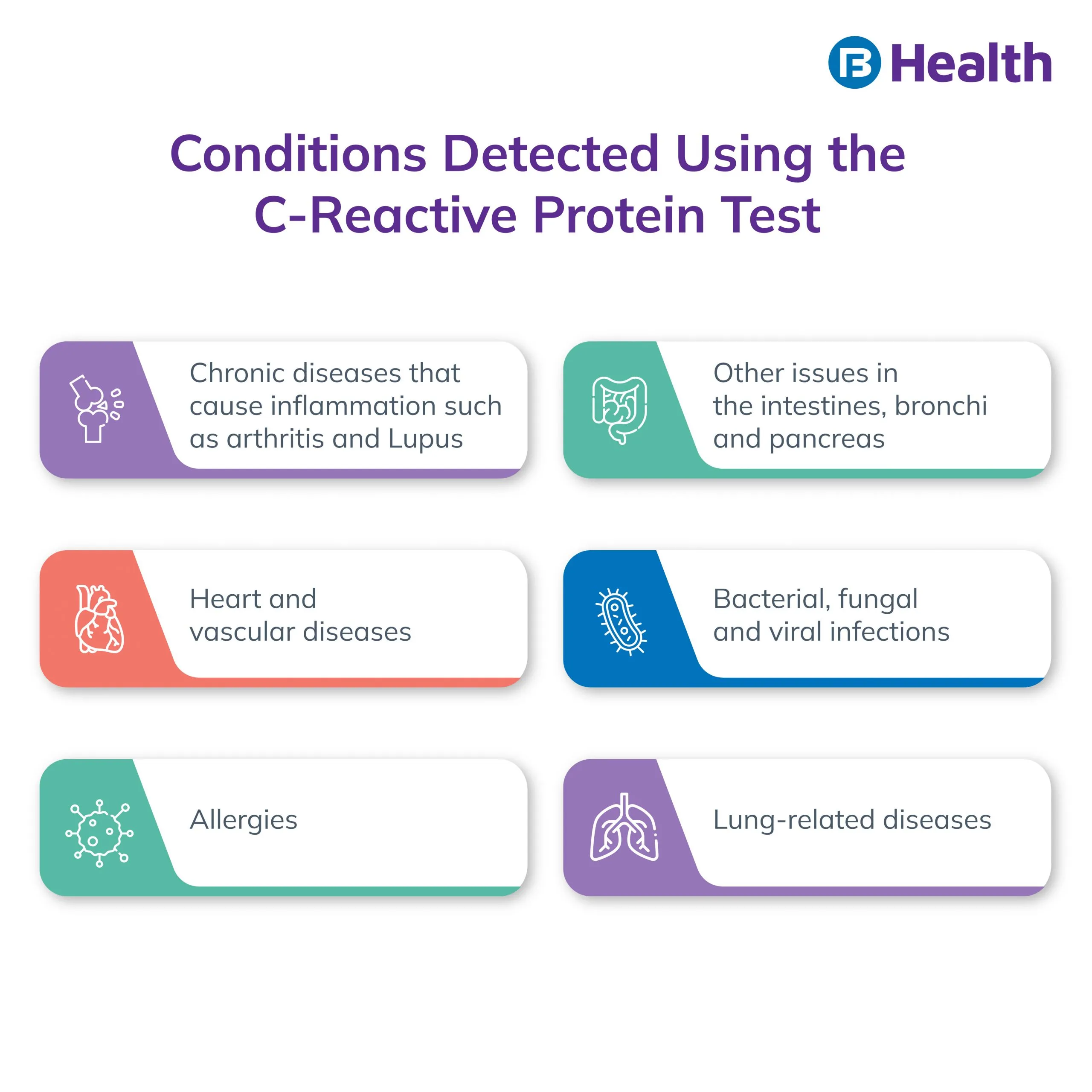
CReactive Protein Test Procedure, Purpose and Results
C-reactive protein (CRP) is an annular (ring-shaped) pentameric protein found in blood plasma, whose circulating concentrations rise in response to inflammation.It is an acute-phase protein of hepatic origin that increases following interleukin-6 secretion by macrophages and T cells.Its physiological role is to bind to lysophosphatidylcholine expressed on the surface of dead or dying cells.